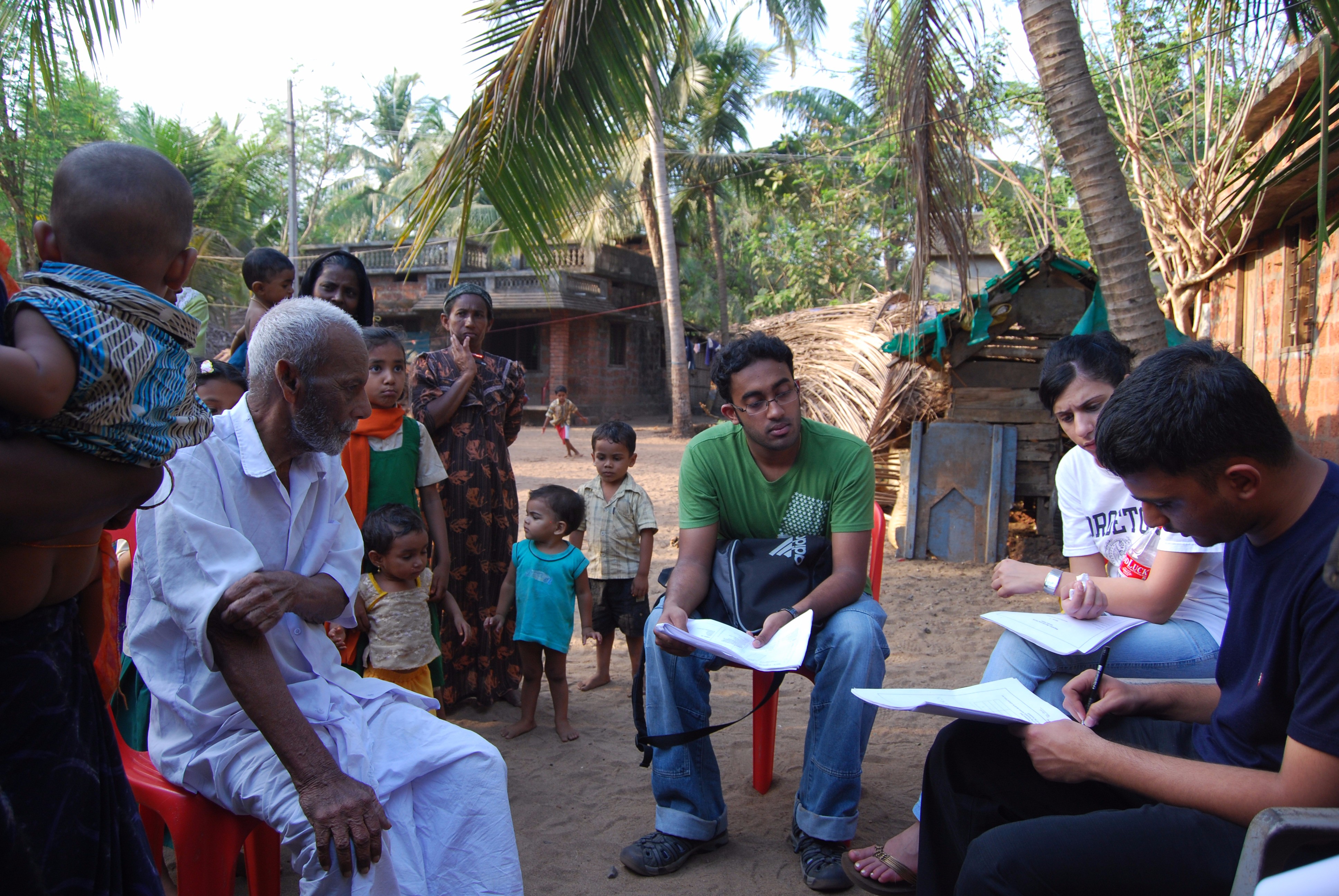Georgetown Students' Migrant Research Tapped by International NGO
>
When six Georgetown University School of Foreign Service in Qatar (GU-Q) students teamed up with
their professor to design a financial literacy curriculum for migrant workers, little did they know that the
fruits of their labor would be used by an international NGO to train pre-migrants and their migrant
families.
GU-Q alumnus Aakash Jayaprakash was extremely happy to see the culmination of their work when he
learned that one of the largest Swiss-based NGOs would be using the curriculum that he and his
Undergraduate Research Experience Program (UREP) team had designed. “Our hard work is making a
real difference in the region,” he exclaimed.
The UREP-funded project, awarded by the Qatar National Research Fund (QNRF), found that migrant
workers can learn to save more money after attending a short financial literacy workshop. The study
focused on married, male Indian migrant workers in Qatar, and their spouses who remained back in
India.
Assistant Professor Ganesh Seshan was the faculty mentor for the six students who worked together to
implement a control trial of the project. The UREP team, Eilin Francis, Aakash Jayaprakash, Aminah
Kandar, Jibin Koshy, Marlene Nang, and Qazi Rashid, provided the research assistance that led to the
decisive conclusions. Karthik Gopalan worked on the curriculum’s first draft in an earlier UREP project
that inspired the study’s focus on financial literacy.
The study found that a savings-focused workshop substantially changed migrant workers’ financial
practices. It also led to more joint financial decision-making between migrants and their spouses.
“This is one of the most practical and field-oriented training modules on financial literacy I have seen,”
said Katrin Rosenberg, project manager at HELVETAS Swiss Intercooperation in Sri Lanka. “This module,
together with other modules, serves as a basis for the development of our specific training tool on
budgeting and saving.”
Rosenberg expects that the curriculum can also be adapted for use and contribute to the creation of
training material for migrants from Nepal, as well.
Committed to making migration safer for workers, HELVETAS Swiss Intercooperation is a non-profit
organization that promotes self-reliant and sustainable development in 30 countries across Africa, Asia,
and Latin America. It has been active in Sri Lanka for over 30 years.
“In addition to the quantitative conclusions of our study,” said Dr. Seshan, “we found anecdotally that
when people are able to save money and meet their financial goals then they are happy and able to go
back to their families and home countries. Financial planning and meeting their financial goals
stimulates productivity and when these workers feel satisfaction in terms of being able to provide for
their families, then they are less likely to fall ill or overstay their contract. This benefits the migrant
worker and the host country,” he explained.
The above information was provided by Georgetown University School of Foreign Service in Qatar. For more stories about their work, please visit
https://qatar.sfs.georgetown.edu/.
